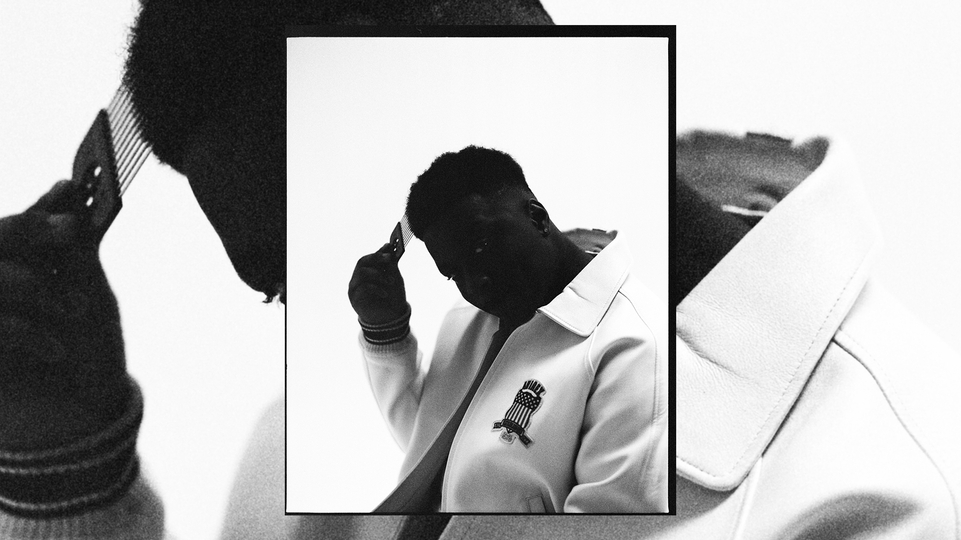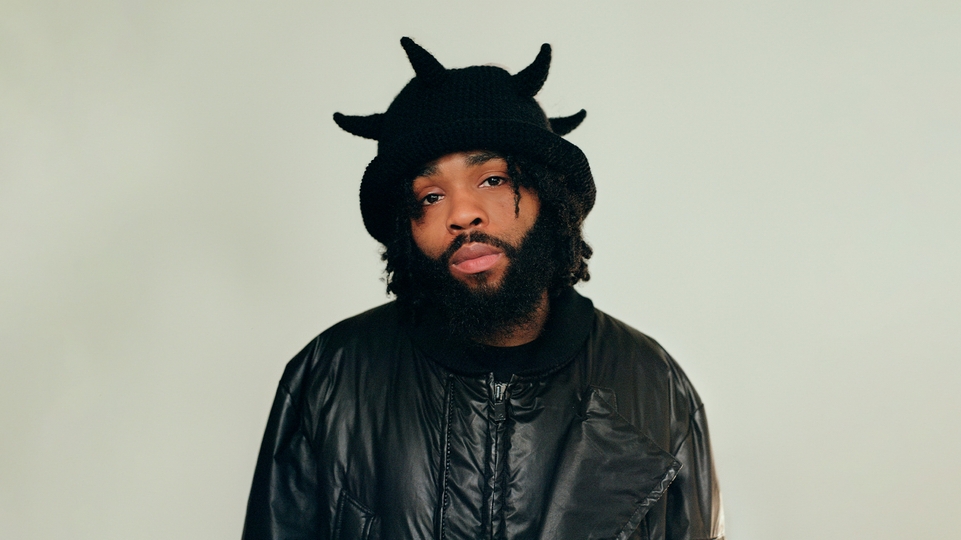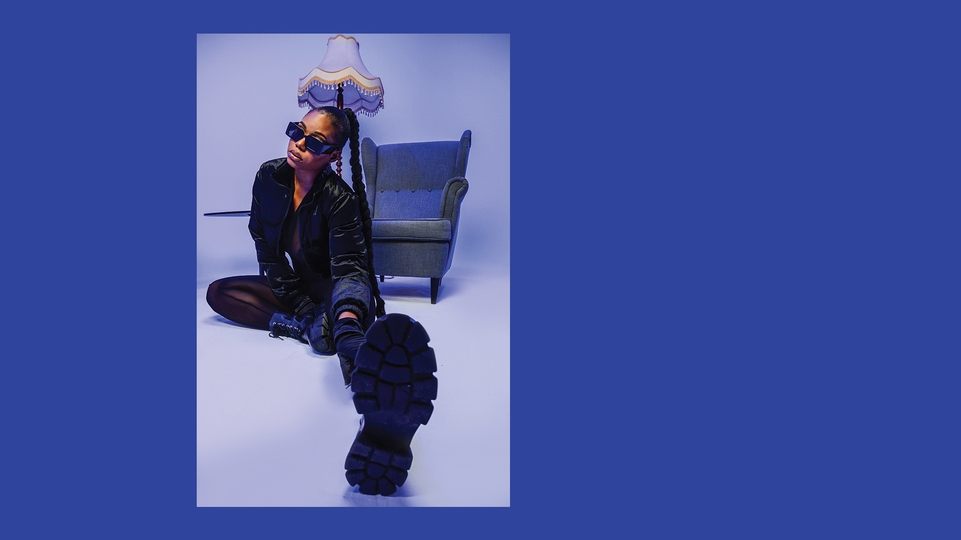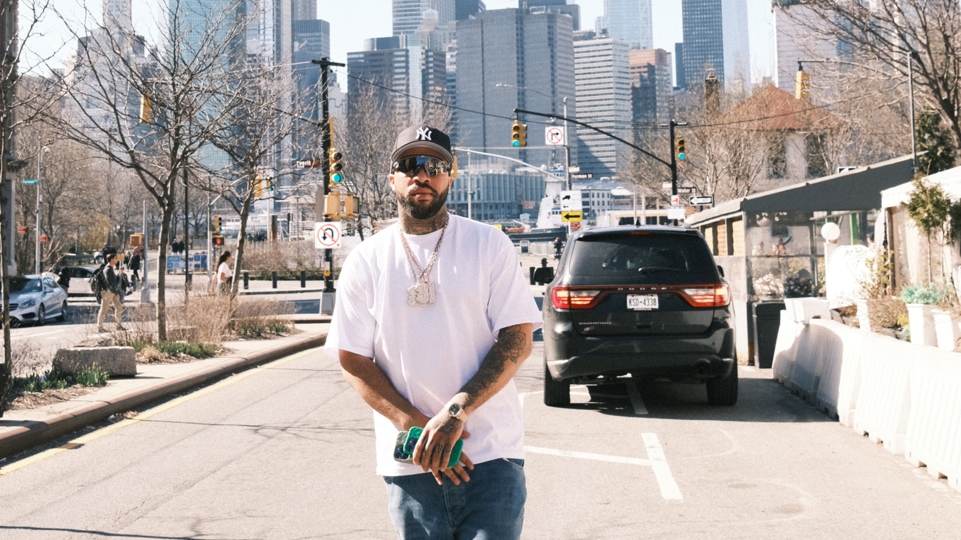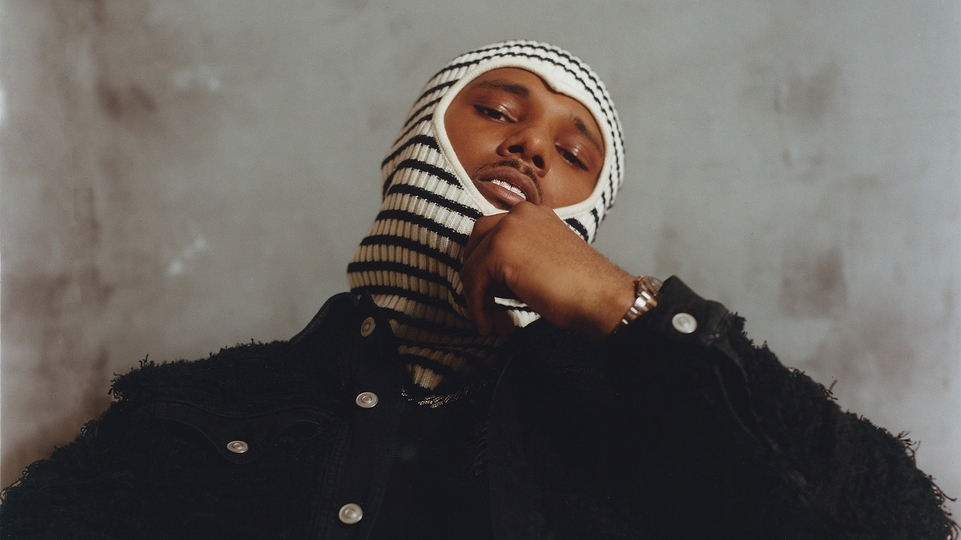
Meet the MC: Hardy Caprio
Sierra Leone-born, London-raised rapper Hardy Caprio is by no means a new name on the scene, but after taking time to deal with his own trauma and heal, he's back with new music. Here, he speaks to Robert Kazandjian about his major label fallout, identity, and creating with joy
Despite earning his stripes as an emcee in the school playground, dropping his first freestyle at the age of 14, and then going on to amass over a quarter of a billion streams courtesy of sun-drenched bangers like ‘Unsigned’ and ‘Super Soaker’, Hardy Caprio would like to re- introduce himself. “I wouldn’t say ‘rebirth’ is too powerful a phrase,” he tells DJ Mag over Zoom. “That probably hits the nail on the head, you know.”
The Sierra Leone-born, Croydon-raised artist broke through in 2015 with a soul-baring freestyle over Tinie Tempah’s ‘Wifey’ instrumental. Treading the tightrope between dreams and duties, he was independently releasing music while also studying at Brunel University at the time. Hardy’s ‘Wifey Riddim’ emphasised both his lyrical edge, and his motivation to escape the poverty that blighted his upbringing: “They ain’t never read letters with red letters and didn’t get pressure,” he raps over the iconic production. Virgin EMI were impressed, and a record deal soon followed.
Hardy distinguished himself as a self-described “feelgood rapper” by releasing a string of breezy, playful anthems about the glories of newfound success. Arguably the best known example, 2018’s ‘Best Life’ — featuring One Acen — sounds like a musical sunbeam, and has been viewed over 40,000,000 times on YouTube. But the apparent joy in his music didn’t reflect what was going on behind the scenes; he found the label’s creative control over his career suffocating, ultimately leading to negotiations which ended his deal.
Hardy announced this last August, with a Twitter post titled ‘Being in the industry has broken me’. It detailed how his experiences within the industry had turned music into a source of pain, and how “the people inside them buildings rinsed another broken kid from a working-class environment”. Hardy went on to describe trauma in his family life, and alluded to being sexually abused as a child, before resolving that his statement was not the end but the start of something better. The catharsis in his words was palpable.
Today, he’s got a nasty cold, and his voice — which flows smoothly like Hennessy over ice when he raps — is gruff and raspy. He’s in a good place, though. “I’ve been spending a lot of time by myself. I actually haven’t had time to do that since music first took off. These have been the first few months that I’ve had quality time with myself,” Hardy explains, between sips of hot lemon and honey. “It’s helping me get to who I really need and want to be, ultimately. I wanted to take hold of where I wanna go, as an artist. Because when you start so young, you kind of just go with it. And there’s so much outside noise, you can lose where you wanna go.”
In the wake of his Twitter statement, the source of that outside noise fell away. “I was intentional about that,” he continues. “I was around people who were very secretive, very insecure. So that statement was a big step in getting those kinds of people to manoeuvre away from me. It felt raw afterwards, but the way my life started looking is what I wanted, because people I wanted to fall away did. And people I wanted to be with came around, naturally.”
Thriving amid the peace of his newfound solitude, Hardy has been able to fall back in love with the art of making music. He’s spent the last few months in the studio with his manager Kyden, incorporating everything from Afroswing to garage and grime into the songs he’s working on, blissfully unbothered by external pressures. “The answer is just going back to making what I want to make,” he says. “My breakthrough singles, I just made those in the way I did because I wanted to. Now I’m there again, just doing that all the time. It’s about self-awareness, and identity really.”
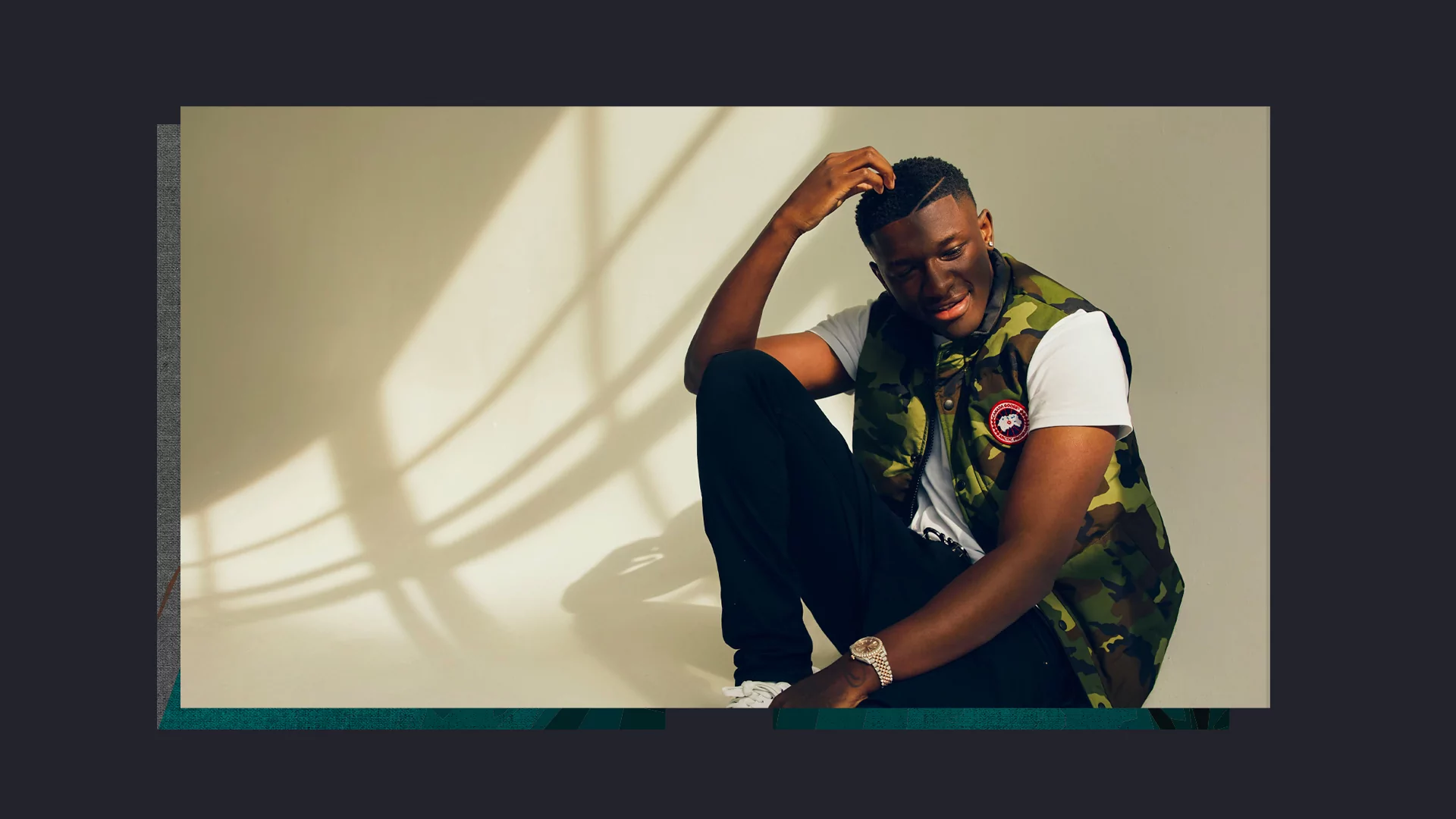
“I feel like the essence of music is joy. In my heart of hearts, that’s what I like. And I just want to encourage people to be themselves.”
Hardy is embracing the fact that identity is not fixed, but fluid. His new music reflects that. The vibe of ‘Under The Sun’ is celebratory but gentle, glazed with bright, poppy strings, while ‘Get To Know’ — which dropped in September and features Ayo Beatz — is laced with boastful, big money flexes and chest-puffing energy. The accompanying video, shot in Dubai, doubles down on those boasts, with Hardy rapping against a backdrop of beautiful women and supercars. “Back to having my brothers I grew up with in the video” he tweeted when the visuals dropped, clearly enjoying his recaptured independence.
Central to both tracks, and Hardy’s music more generally, is joy. When you consider the context of his journey so far, that joy carries extra significance. There’s the structural injustices that all working-class Black people face. Then there’s his own personal experiences: escaping civil war in Sierra Leone when he was four; the death of his older sister; the domestic abuse that punctuated his home life; the sexual abuse he’s disclosed; and his exposure to the music industry’s exploitative, rotten core.
The image of the tortured artist is a familiar one, and it’d be understandable if pain defined Hardy’s work, but it’s the opposite. “I want the music I make to make me feel good, because if that doesn’t, what will? I’d rather dance in the rain,” he explains. “Big up my audience, but I’m not gonna put myself through hell for them. There’s the Van Gogh mantra, like ‘cut off your ear for this piece of art’. I’m not gonna do that, bro. But I hope people can find some happiness and solace through my story, innit.”
In last August’s Twitter statement, Hardy wrote “Something that was once my therapy, my passion, became my torment and my anguish.” Now he’s in a much happier, healthier frame of mind. Does that mean songwriting feels therapeutic again? “I don’t think it will ever feel like that again, to be fair,” he admits. “But I don’t mean that in a bad way. I feel like I’m past that point, if that makes sense? I’m at peace. So I can make the music sound as nice as I want to.”
After the memory of being sexually abused resurfaced during a bad trip from an edible in 2021, Hardy contacted a therapist and began working through his trauma with them. By doing the work in therapy, it allows music to be a safe space for him. “Therapy has helped me realise I don’t need to talk about those topics in music. I don’t gravitate towards that. I think sometimes the need for self-expression in that way can lead to more problems,” he says. “I feel like the essence of music is joy. In my heart of hearts, that’s what I like. And I just want to encourage people to be themselves.”
